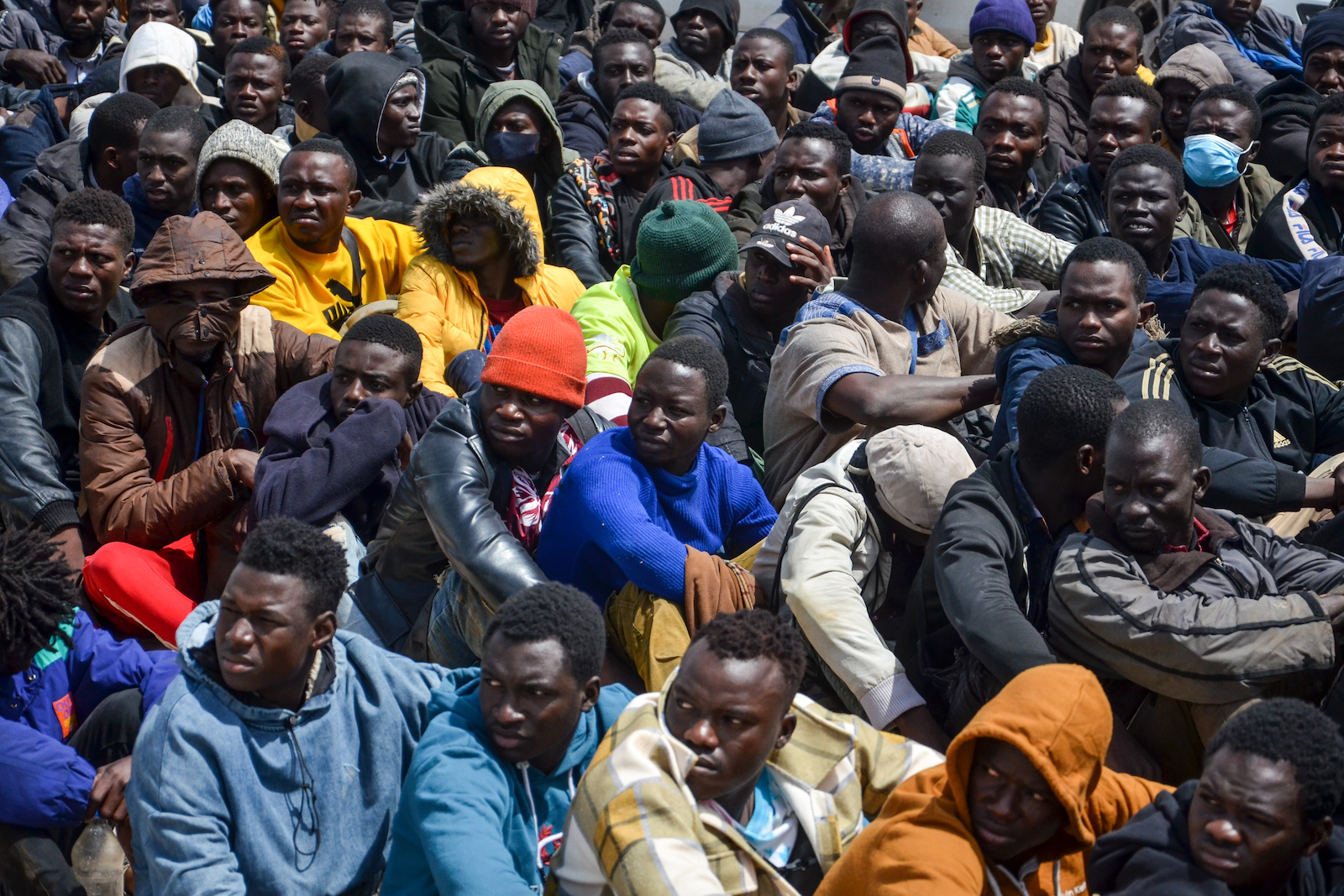
The United States Should No Longer Ignore Tunisia’s Migration Crisis
Tunisia’s Mediterranean coastline once brimmed with promise, serving as a vital lifeline to those in search of sustenance and opportunities for many years. Not anymore. Today, lifeless bodies of migrants who failed to cross to Europe wash up on Tunisian coasts, leaving behind only echoes of what once was a sea of abundance. Those migrants who get caught crossing are set free, prepared to try their luck again in what is now a sea of lost hopes and dreams.
The Central Mediterranean route linking North Africa to Italy and Malta has long been the deadliest migration passage. According to the International Organization for Migration (IOM), nearly 2,500 people died or disappeared as they attempted to cross the route in 2023. Of the more than 150,000 people who were able to cross the route that year, more than 62 percent left from the beaches of Tunisia, making Tunisia the top departure point for migration towards Europe and the top destination point for migrants looking to make it there.
Tunisia is ill-equipped for such massive waves of migration. European Union initiatives have failed to bolster Tunisia’s capacity to handle the influx of migrants arriving at its shores. The United States can help Tunisia tackle its migration crisis at a time when Tunisia and its migrants need it the most. By providing increased direct aid for the growing migrant population, training the Tunisian military and security forces in border and migration management, and investing in youth employment, the United States can reduce the strain of migration on its European allies, foster stability in an increasingly chaotic region, and safeguard human and migrant rights.
Though political relations between the United States and Tunisia remain fragile, the two countries still maintain a strong military partnership. The United States continues to provide significant security assistance to Tunisia in the form of Foreign Military Financing (FMF) while the Tunisian government still considers the U.S. funding for International Military Education Training (IMET) programs vital to the development of its officer corps. The U.S.-Tunisian security partnership presents a prime opportunity for the United States to influence and address Tunisia’s migration crisis through tailored assistance.
An empowered Tunisia capable of managing its surging migration rates would benefit U.S. interests in several ways. First, it would alleviate the strain on America’s European allies, who are already facing political backlash and heightened tensions from rising migration. Second, it would enhance stability in North Africa and the Sahel by providing safe haven for migrants, shielding them from the influence of violent extremist organizations such as al-Qaeda in the Islamic Maghreb (AQIM) and Boko Haram. Third, reaffirming U.S. commitment to human and migrant rights in Tunisia would help restore the U.S. moral standing in a region where support for Israel’s Gaza operations has eroded it.
Here are three steps the United States can take in the short, medium, and long term to strengthen Tunisia’s capacity to handle its migration crisis.
In the short term, the United States can provide additional direct aid to migrants in Tunisia via USAID or the U.S. Embassy, delivering essentials such as food, water, shelter, and healthcare. Given the increasing discrimination and xenophobia faced by migrants in Tunisia, prioritizing mental health services will also prove crucial in ensuring the well-being of these individuals.
In the medium term, the United States can leverage its State Partnership Program to train the Tunisian military and security forces on border and migration management and the activities of violent extremist organizations operating across the region. The Wyoming National Guard, as Tunisia’s official state partner, can offer this specialized training alongside their regular exercises and programs.
In the long term, the United States can address Tunisia’s youth unemployment problem by investing in sectors and initiatives that offer opportunities for the country’s young population. Youth unemployment remains the primary reason behind the growing trend of young Tunisians seeking opportunities in Europe. Given that the majority of irregular migrants departing from Tunisia are Tunisian nationals, U.S. support in addressing youth unemployment in Tunisia can significantly reduce the number of migrants taking the Central Mediterranean route.
The United States is uniquely positioned to help Tunisia with its migration crisis. At a time when EU initiatives have failed to bolster Tunisia’s ability to manage increased migration, the United States can leverage its strong defense ties with Tunisia to enact impactful change. By enhancing Tunisia’s capacity, the United States can mitigate the strain of migration on its European allies, cultivate stability in a region plagued by growing disorder, and protect human and migrant rights. In Tunisia’s migration crisis, the United States does not have to choose between its strategic interests and its moral principles – for once, it can choose both.

